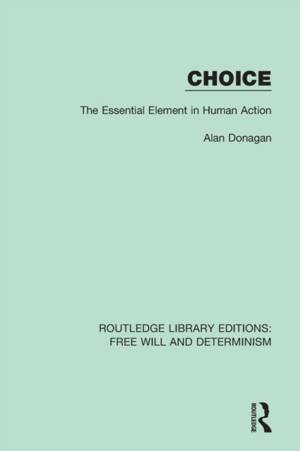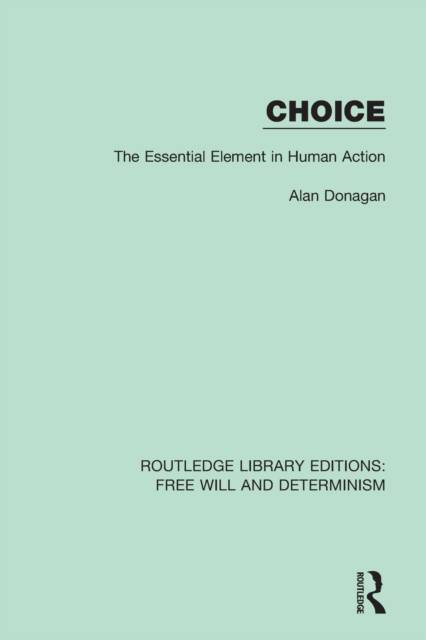
- Retrait gratuit dans votre magasin Club
- 7.000.000 titres dans notre catalogue
- Payer en toute sécurité
- Toujours un magasin près de chez vous
- Retrait gratuit dans votre magasin Club
- 7.000.0000 titres dans notre catalogue
- Payer en toute sécurité
- Toujours un magasin près de chez vous
Description
This book, first published in 1987, investigates what distinguishes the part of human behaviour that is action (praxis) from the part that is not. The distinction was clearly drawn by Socrates, and developed by Aristotle and the medievals, but key elements of their work became obscured in modern philosophy, and were not fully recovered when, under Wittgenstein's influence, the theory of action was revived in analytical philosophy. This study aims to recover those elements, and to analyse them in terms of a defensible semantics on Fregean lines. Among its conclusions: that actions are bodily or mental events that are causally explained by their doers' propositional attitudes, especially by their choices or fully specific intentions; that choice cannot be reduced to desire and belief, and hence that the traditional concept of will as intellectual appetite must be revived.
Spécifications
Parties prenantes
- Auteur(s) :
- Editeur:
Contenu
- Nombre de pages :
- 210
- Langue:
- Anglais
- Collection :
Caractéristiques
- EAN:
- 9781138704145
- Date de parution :
- 11-12-18
- Format:
- Livre broché
- Format numérique:
- Trade paperback (VS)
- Dimensions :
- 156 mm x 234 mm
- Poids :
- 303 g

Les avis
Nous publions uniquement les avis qui respectent les conditions requises. Consultez nos conditions pour les avis.






